Sadly, selfie distortion is real. Thanks to its wide-angle lens, your phone’s camera does distort your face. In fact, your phone’s front camera all but guarantees to enlarge your nose, shrink your ears and squash your head.
Fortunately, selfie distortion is predictable and avoidable. Here are a few tricks you can use to take better portraits with your smartphone. Jump to Conclusion
Table of Contents
- Why your phone camera distorts your face
- Selfie Distortion Example
- How to avoid selfie distortion
- Conclusion
Why your phone camera distorts your face
It’s not just your phone camera that distorts your face. Any camera equipped with a wide-angle lens will distort your features. It’s for this reason why professional portrait photographers favor long-range telephoto lenses such as the 85mm pictured below. Read How Focal Length Affects your Photos.
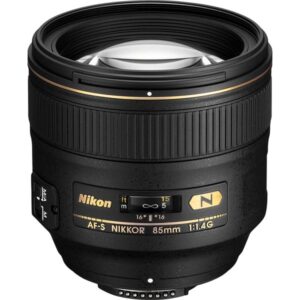
Unfortunately, a high-magnification portrait lens would be useless since your phone’s front camera is usually operated at arms-length. As a result, a wide-angle lens is a practical necessity.
Wide-angle lenses are hugely useful when you need to squeeze a large scene, such as a landscape, into a photograph. They are also ideal when you have to work up-close with what you are photographing.
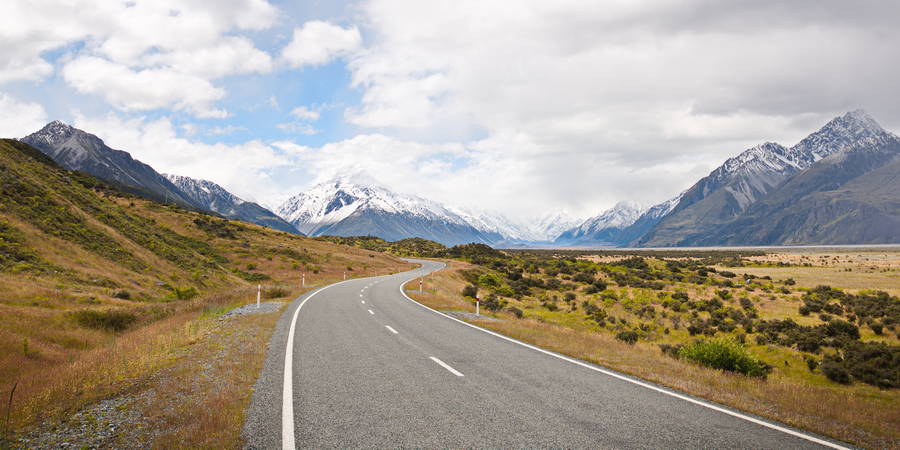
Wide-angle lenses work by rapidly shrinking distant objects. The more distant the object is, the smaller it will appear relative to closer objects.
Unfortunately, a wide-angle lens has the same effect on your face. The closest part of your face, your nose, will appear disproportionately large whilst your more distant features such as your eyes and ears will shrink at a rapid rate. Viewed as a whole, your head begins to resemble a Mellon.
Selfie Distortion Example
Below is a picture of me. Slide the bar left to right to compare a distorted shot taken with a wide-angle lens and another photo taken with a standard lens. Let me know in the comments which photo I look best in 🙂
How to avoid selfie distortion
1. Selfie Sticks
Whilst arguably more socially destructive than any ugly photo, they do work.
By putting distance between you and your phone’s wide-angle lens, you vastly reduce selfie distortion. As a result, your face will appear closer to its proper proportions.
2. Use your phone’s rear camera
Your phone’s main camera is usually equipped with a lens with a longer focal length. In fact, many modern smartphones, such as the Galaxy S21 feature multiple rear cameras, including one optimized for portraits.
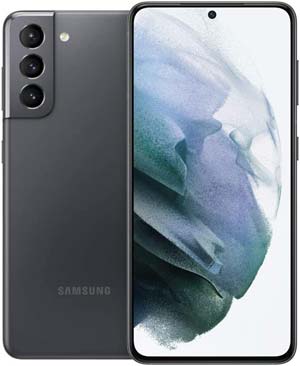
Of course, switching to your phone’s rear camera produces a new problem. You can no longer see yourself on-screen. Also, you may find your rear lens’s magnification is too great for arms-length photography.
The most obvious way around this is to get someone else to take the photo. Alternatively, you can prop your phone up, set your camera’s timer, then take your position for the photo.
3. Buy a camera
If you are serious about taking good portraits, you should consider buying a decent camera. Not only will you get better image quality, but you can also attach a portrait-oriented, distortion-free lens that can blur your backgrounds. Read Best Cameras for Beginners.
Furthermore, many cameras feature a selfie-friendly rear screen that can be rotated towards you. In fact, you can go one better and buy a camera that can be remotely controlled using your smartphone. Read Phone vs Camera.
Conclusion
Selfie distortion is the result of combining a wide-angle lens with arms-length photography. To prevent your phone camera from distorting your face, you must either use a longer lens or increase the distance between you and the camera. And for best results, you should do both.
Of course, doing so is contrary to the entire selfie format. However, if you crave convenience above all else, selfie distortion is the price you must pay.
If you really want to take great self-portraits, a traditional camera becomes hugely advantageous. Many modern cameras now feature selfie-friendly reversible screens, and some can be operated remotely using your smartphone. Not to mention superior image quality and the ability to attach background-blurring portrait lenses.
But if you prefer to continue taking arms-length selfies with your phone’s front camera, do so with the confidence and knowledge that selfie distortion is real, unavoidable and that you look much, much better in real life.
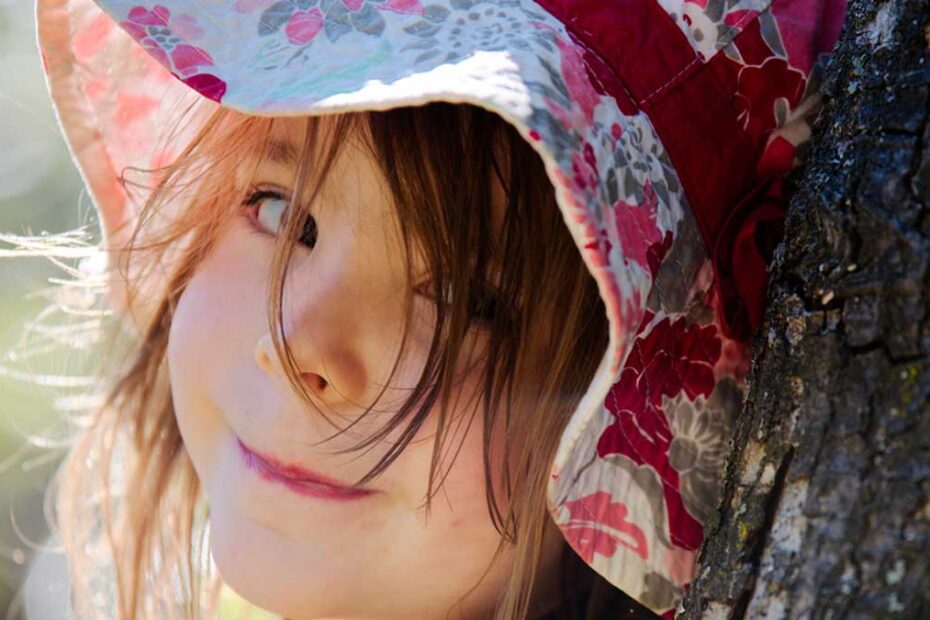
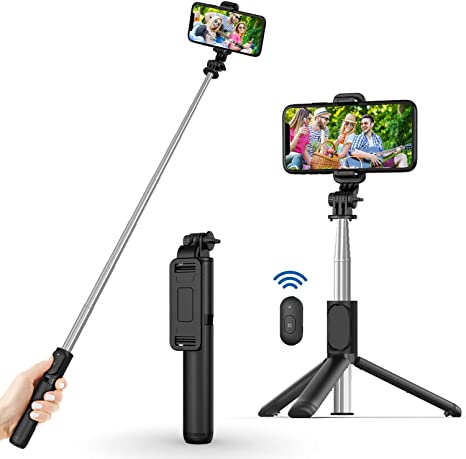
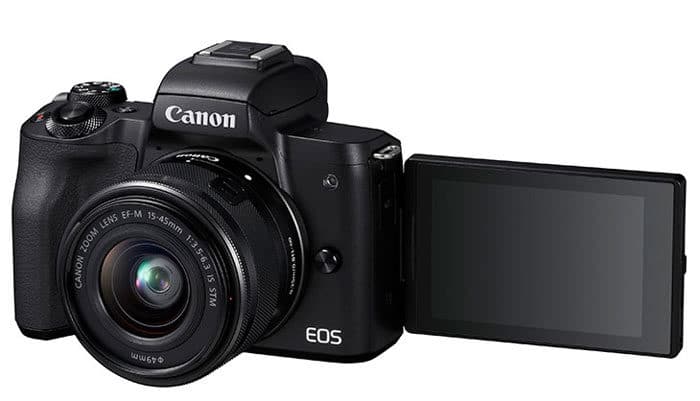
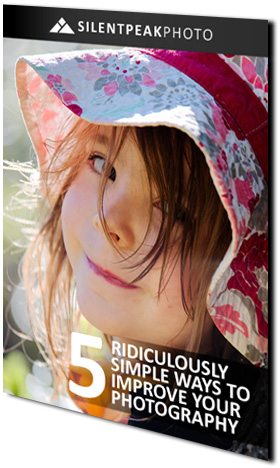
Actually the back camera in Smart phones also distorts faces when taking selfies that are always too close to your face.
Indeed. Unfortunately, any wide-angle lens will distort its subject at short-range.
Thank you for answering me, even a real camera with a great non wide angle lens distorts faces if up too close to the face, but as you know this is even much worse with these typical wide angle smartphone lenses.
Hi,
Yesterday I took self portraits of myself with a Cannon ixus 185 point and shoot digital camera on a tripod set to a 10 second timer, I wasn’t very far away,but very close either but I ended up with a distorted somewhat fat face and a double chin which I don’t have in person,in the mirror or even in inexpensive camera phones even though I have gotten the wide angle lens distortion if the camera was too close to my face but you can’t really tell how close it is and sometimes you get lucky and get really good results. Do you have any suggestions on how to avoid this problem?
Thank You
https://www.amazon.co.uk/gp/product/B01N6JP07Y/ref=ask_ql_qh_dp_hza
Hello Carr – it looks like your camera will zoom between 28 and 224mm. Whilst 28mm isn’t ‘that’ wide, it’s still well within distortion territory. For the sake of comparison, most pro-portrait shorts will be taken at least 50mm though 85mm is the standard. At 28mm, you’ll need to be quite far from the camera to avoid distortion. So far, you’ll appear quite small within the frame. Instead – try zooming up to 85mm and stand further back (if practical). You should get a much better result.
Richard,
Thank you very much for your reply and advice. But today I took test shots sitting further away and I tried to use the zoom lens but I don’t think I know how, I even set the camera to portrait mode but I still have the face distortion of a somewhat fat looking face with a double chin. When I first got this camera in November 2019, my father took a test shot of me smiling using the auto feature and he was standing a medium distance away, and my face was stretched from side to side like a typical wide angle camera phone lens and I had a double chin,and I thought why is this brand new camera causing this? I hadn’t looked at the picture since then and I had never used the camera myself until now and I remember the picture wasn’t good but I didn’t remember that it was this bad so I deleted it.
Also I only managed to get one good but not great serious color close up headshot a few days ago,but it unfortunately came out with an over exposed yellow tint and I corrected it only somewhat on a site that I forget the name of right now, but it looks better in black and white because of this.Can lighting cause a double chin? I used the same lighting, location and distance in my bathroom taking the pictures with the cheap camera phones but they didn’t even cause a double chin, although sometimes I got that fish eye wide angle lens face distortion.
I forgot to add that a few days ago I took pictures with this ixus Cannon 185 of my self portraits taken with two different brands of cheap camera phones where I don’t have a fat face or double chin to see if this camera would cause it in my other pictures, but strangely it didn’t! It’s only with this camera taken live directly of my face.Can you please explain this? Thank You
Unfortunately, I cannot. Distortion is usually a result of combining short distances with short focal lengths (each compounding the other). The only possibility I can think of is a defective lens with excessive barrel distortion at longer focal lengths.
Thank you again Richard, but I don’t really totally understand what this means. Maybe I’m not doing something correctly with this camera. Here is the online manual
https://gdlp01.c-wss.com/gds/2/0300025932/02/ixus185-cu-en2.pdf
Yesterday I bought this inexpensive digital and vlogging camera just to use as a digital camera,it saysit has a face recognition,selfie timer, and it has 48MP and 16 zoom which is more than the ixus has,and that also has a video camera too,
https://www.amazon.com/dp/B0B3JKYYYD?ref=ppx_yo2ov_dt_b_product_details&th=1
So long as you’re using a longer focal length (zoomed into your subject), the less distorted your portrait should appear. This is true of all lenses and has little to do with the camera itself. If your camera produces distorted images regardless of focal length and distance, there must be something wrong with the lens. A standard test is photographing a brick wall or anything else with straight lines. Here’s a nice simulation of barrel distortion:https://en.wikipedia.org/wiki/Distortion_(optics)#/media/File:Barrel_distortion.svg
Thank you again Richard,
But what exactly does focal length mean? I did read your article about it.What I can’t understand though is how and why I got a pretty good ( except for the yellow tint too light over exposed) serious close up headshot of myself with this same camera, it’s strangely puzzlingly only when I’m smiling only with this camera that I get a (pronounced) double chin distortion.
Focal length is a measure of how zoomed-in you are. For instance, a 28mm lens presents a wider more distance view whilst a 200mm lens is ideal for magnifying distance subjects. The shorter the focal length – the more distortion will occur. Therefore, a 28mm lens will always produce more distortion than a 200mm lens.